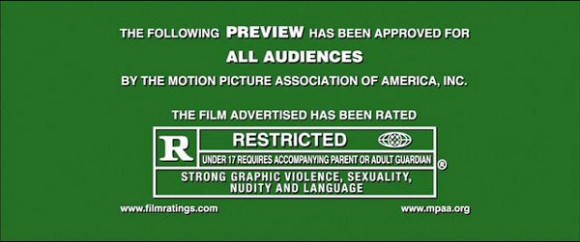MPAA Stands Firm on Rating for Bully, Weinstein Company Considering “Leave of Absence”
All this has happened before...

No, don’t go away! I know this seems like a lot of coverage on a little story. I only just did a whole post on Bully and the MPAA response to it, and its creators’ response to the MPAA’s response yesterday. But I find this story very interesting, and worth paying attention to, because it’s the kind of story that has all the qualities of becoming a bigger story, if the stars align. Which they likely won’t, but let me at least explain what those qualities are.
First, lets explain the new developments: the MPAA has refused to budge on Bully‘s R rating after an appeal hearing featuring the movie’s director, producer, and one of the former teenagers it focuses on. The Association is standing by the letter of its rules on profanity, affirming its responsibility “to acknowledge and represent the strong feedback from parents throughout the country who want to be informed about content in movies, including language.”
Producer Harvey Weinstein released his own response to the ruling, in which he expresses disappointment, particularly in the fact that the city of Cincinatti had pledged to bus all of its students to screenings and would now have to revise the idea under the school districts rules for show R rated movies to kids. He also announced that The Weinstein company is “considering a leave of absence from the MPAA for the foreseeable future.” Now, there’s really no telling what that means. Deadline notes that Weinstein is not a member of the MPAA, so they can’t take a leave of absence. They can, however, choose not to submit their movies for rating, which would mean that they might have considerable trouble getting them released to a wide selection of theaters. “An unrated film rarely is screened in theaters per a longstanding though nonbinding agreement between exhibitors and the MPAA.” Basically, an unrated film is tantamount to a worse than NC-17; nobody’s really going to want to host that thing.
The MPAA’s take on it, is predictably, that it’s a publicity stunt for the movie, and they might be right. But even if it is, it might draw some wanted attention on the rigidity of the MPAA’s rules in the first place, and how they’ve fallen considerably behind the times of “the profane.” It wouldn’t be the first time that a work of art made to teach children about the dangers of a subjects considered too “adult” for them was released outside of the normal rating system, and sometimes those works can have a pretty big impact.
Take the Comics Code Authority for example. Under the incredibly restrictive self-regulating body of most American comics in the ’60s and ’70s, it was generally against regulations to refer to drug use or commerce at all in a story, though a very few exceptions had been made in the case of superheroes fighting drug runners. The U.S. Department of Health, Education and Welfare approached Stan Lee, and asked him to run an anti-drug story in the wildly popular The Amazing Spider-Man. The story was turned down by the CCA immediately, despite the fact that it was completely anti-drug use in every respect, and, with the backing of the U.S. government, Lee published it anyway without the code’s stamp. The success of the story prompted the CCA to revise their rules on subject matter, and it’s considered one of the first salvos in the broad liberalizing of the code that occurred in the following decades, allowing comics to gain a significant amount of relevance back.
Now, there are a lot of differences between these two stories, primarily among them that Bully doesn’t have the backing of a government department, and that Stan Lee wasn’t so worried that stores wouldn’t order issues of Spider-Man, just that parents wouldn’t buy them. The MPAA, while restrictive and conservative in how it considers women’s sexuality and gay relationships, just to name a couple of examples, is still not as restrictive and conservative as the CCA in the 1970s. But it does illustrate how a story about a social issue that all kids should be informed of can sometimes be a PR nightmare for a ratings system to try to keep out of the hands of kids. Bully may not be that catalyst for the MPAA, who, as I love to say, would rather that kids watch a dude slice off another dude’s limbs and set him on fire so long as there’s no visible blood, than watch a dude kiss another dude. But I wouldn’t mind it if it was.
(via Deadline.)
Have a tip we should know? [email protected]